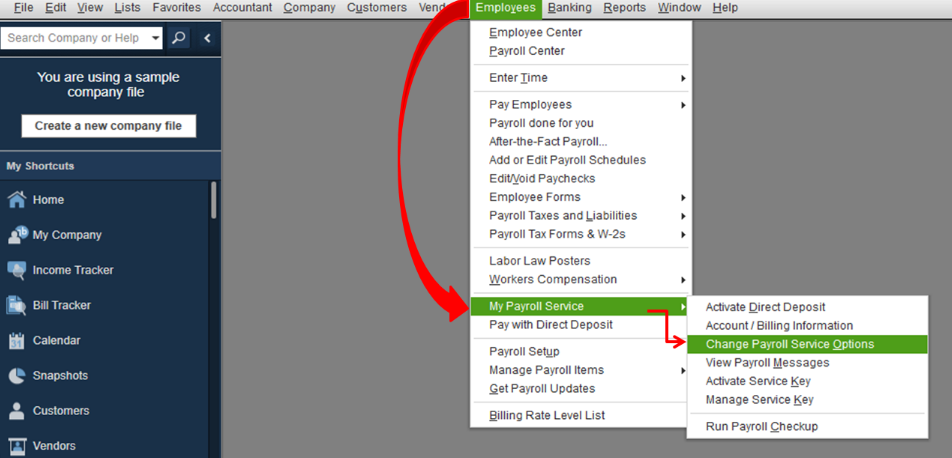How to Deal with Financial Emergencies: Learn Important Steps

Financial stability is a goal coveted by many, but life is full of unexpected events that can shake our finances.
Financial emergencies can arise in various forms, such as unexpected medical expenses, job loss, or even unexpected home repairs.
In this context, it is crucial to develop effective strategies to deal with such situations and minimize the negative impacts on our financial life.
Anúncios
Therefore, in this article, we will provide tips to help you handle financial emergencies. Follow along and discover important steps!
Pause and Reflect Before Making Any Decisions
In times of financial emergency, the pressure to make quick decisions can bring even more problems for you. Therefore, it is crucial to pause and dedicate time to reflection before taking any action.
Anúncios
Impulsiveness can lead to inappropriate choices that have the potential to worsen the financial situation rather than resolve it.
Thus, before making hasty decisions, it is essential to fully understand the extent of the financial emergency.
Analyze the situation calmly, identifying the root causes and assessing the real impact on your finances.
By pausing and reflecting, you can establish clear financial priorities. Determine which essential expenses need to be addressed immediately and which ones can be postponed or adjusted.
This will help direct your resources more efficiently, ensuring that fundamental needs are met before considering other expenses.
There are various options available for dealing with financial emergencies, and not all solutions are suitable for every situation.
Therefore, take time to research and consider the available options. Choosing the most appropriate option requires a complete understanding of the short and long-term implications.
In times of financial uncertainty, seeking guidance from specialized professionals can be a wise decision.
Consult a financial advisor for insights into your options and specific strategies for your situation.
These professionals can offer personalized advice and assist in creating a realistic financial plan.
Remember that financial pressure can significantly impact emotional well-being.
That is, pausing and reflecting not only allows for more conscious financial decision-making but also helps preserve mental health.
Evaluate Your Financial Situation
Regularly assessing your financial situation is a fundamental practice for effective personal finance management.
This assessment provides a clear understanding of financial health, enabling informed decision-making and the implementation of strategies to achieve financial goals.
List all sources of monthly income, including salaries, extra income, among others. Detail all regular and variable expenses, such as housing, food, transportation, bills, and leisure.
Subtract total expenses from total income to calculate the monthly balance. A positive balance indicates that expenses are being covered, while a negative balance may signal the need for lifestyle or expense adjustments.
List all debts, including student loans, mortgages, credit cards, and other financing.
Additionally, assess interest rates and repayment terms to determine strategies for reducing or eliminating debts.
Record all expenses to gain a more detailed view of spending patterns. This helps identify areas where savings are possible or where the budget can be adjusted.
Financial situations are constantly evolving. Therefore, update your assessment regularly to reflect changes in personal, professional, or economic life.
Check and Prioritize Expenses
Checking and prioritizing expenses is a crucial step in the financial management process, especially in emergency situations.
Thus, classify expenses into categories such as housing, food, transportation, utilities, debts, entertainment, among others.
This will facilitate analysis and identification of areas where adjustments can be made.
Therefore, prioritize essential expenses such as housing, food, utilities, and medical expenses. These are the expenses that must be met to ensure basic well-being.
But also analyze variable expenses such as entertainment, restaurants, and non-essential purchases. Consider temporary cuts or reductions in these categories to free up resources.
Identify unnecessary expenses that can be completely eliminated. This way, you can start financially reorganizing and know how to deal with financial emergencies.
Contact Your Credit Card Company
Contacting your credit card company is an important practice, especially in financial emergency situations.
Before contacting them, have essential information on hand, such as your credit card number, your name, address, and specific details about the financial situation.
Thus, analyze your recent statement to fully understand your financial situation.
Also, review the terms and conditions of your card to have clarity on policies regarding late payments, fees, and available options.
Clearly determine the reason for contacting them. It may be related to financial difficulties, requesting an extended deadline, etc.
If you anticipate difficulties in making the payment by the due date, contact the company before the deadline.
That is, be transparent about your financial situation and explain the reasons for the delay, if applicable.
Many credit card companies are willing to negotiate flexible payment options or offer temporary payment plans in financial hardship situations.
Inquire about possible relief programs or temporary interest reduction options.
Find Out if Insurance Can Help
When facing financial emergencies, it is essential to consider whether the insurance you have can offer any type of assistance or relief.
Thoroughly examine your insurance policies, including health insurance, life insurance, car insurance, and any other insurance you have.
Thus, check specific coverages and benefits offered by each policy.
Look for clauses or coverages that may be related to your emergency situation.
After all, some insurances offer benefits for medical expenses, job loss, temporary disability, among others.
If you identify coverages that may be applicable to your situation, contact the insurer. Explain your situation and inquire about the procedures to activate these specific coverages.
If the emergency is related to financial difficulties, ask the insurer about flexible payment options or temporary payment plans.
Some insurers may offer extended deadlines or temporary grace periods in cases of financial hardship.
Explore Additional Sources of Income
When dealing with a financial emergency, exploring additional sources of income can be an effective strategy to help alleviate financial pressure.
Evaluate your skills and professional experiences and look for freelance or consulting opportunities in your area of expertise.
Online platforms offer various options for freelancers in areas such as writing, design, programming, and marketing.
Consider selling products or services online. This may include creating an online store, selling crafts, or even providing online services such as tutoring.
If you have a blog, website, or significant presence on social media, participate in affiliate programs. This allows you to earn commissions by promoting products or services from other companies.
But if you have specific knowledge in an area, consider conducting online courses or workshops. Online teaching platforms offer opportunities to create and sell courses on a variety of topics.
Be open to temporary jobs or contracts that may offer an additional source of income. This may include seasonal work related to holidays or specific events.
Talk to a Professional
Talking to a professional can be a valuable step in dealing with financial emergencies.
Various specialized professionals are available to offer guidance and support, depending on the specific nature of the situation.
A financial advisor can provide specialized guidance on financial planning, budgeting, investments, and strategies for dealing with financial emergencies.
They can help create a personalized plan to achieve your financial goals.
If the financial emergency involves tax or accounting issues, an accountant can offer advice.
Including on how to handle tax obligations, optimize deductions, and manage personal or business accounting.
In cases of legal issues related to finances, a finance-focused lawyer can provide guidance on consumer rights, debt-related legal proceedings, or any specific legal issue.
For situations where the financial emergency is linked to social factors, a social worker can offer emotional support, connections to community resources, and assistance in navigating social assistance programs.
If the emergency is related to job loss or workplace issues, a human resources specialist can provide guidance on benefits, unemployment insurance options, and job search strategies.
In situations where financial stress impacts mental health, a financial therapist can help explore emotional issues related to money and develop strategies for dealing with financial stress.
In any case, you will receive guidance on how to deal with financial emergencies.
Conclusion
Dealing with financial emergencies is a challenge, but with proper planning and strategies, it is possible to overcome these difficult times and strengthen your long-term financial health.
By adopting a proactive approach, you will be better prepared to face the financial uncertainties of life.
Liked the tips on how to deal with financial emergencies? Continue on the site for more amazing finance tips.





